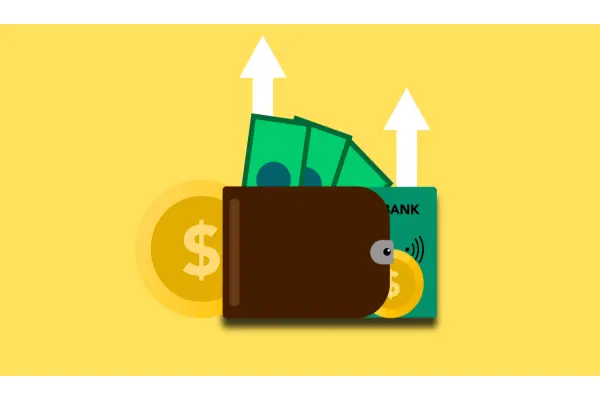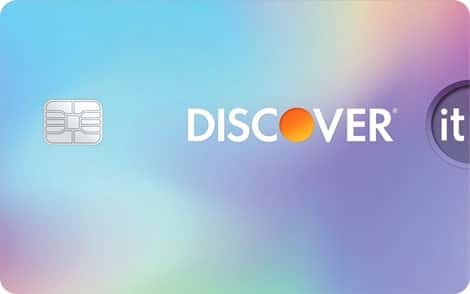
What is a credit cards for college students?
A student credit card functions similarly to any other credit card, but it is designed with rewards and features that cater specifically to the needs of students. Student credit cards are generally easier to obtain approval for, as many students who are applying for their first credit card often have limited or no credit history. Additionally, these cards provide rewards for purchases that are commonly made by students, such as streaming subscriptions, dining, or spending on Amazon.
Why it’s wise to build credit cards for college students
Building credit may not appear to be a pressing matter while still in school, but initiating your credit history as early as possible is highly advantageous. Establishing good credit will prove crucial in the future when you aspire to purchase a house or obtain a car loan. However, there are even more immediate benefits to having good credit. For instance, it can enhance your prospects of securing employment or renting an apartment.
Your credit history, which is outlined in your credit report and summarized by credit scores, reflects how effectively you have managed borrowed funds. Utilizing a credit card responsibly is one of the most efficient and straightforward methods to establish credit. Good credit proves beneficial in various situations.
When seeking financial assistance, such as a credit card, car loan, personal loan, mortgage, or any other type of loan, having good credit is crucial as it can determine whether your application gets approved or rejected. Additionally, having good credit can make you eligible for lower interest rates, ultimately saving you money.
When applying to rent an apartment, landlords often consider your credit score as an indicator of your reliability in paying rent on time.
Utility companies commonly review customers’ credit history. If you have a poor credit score or no credit history, your power company or water utility may require you to pay a deposit or obtain a letter of guarantee from someone who agrees to cover your bill if you are unable to.
Depending on your occupation, having good credit may be necessary to pass an employment screening. Certain employers, particularly those involving financial responsibilities, may conduct credit checks to assess your ability to handle other people’s money.
If you have aspirations of starting a business or wish to maintain the possibility of doing so in the future, some creditors may evaluate your personal credit score when establishing business credit. A favorable credit score can help you secure affordable interest rates, making your entrepreneurial dreams more attainable.
Who should apply for a credit cards for college students
Merely being enrolled as a college student does not automatically make you eligible for a student card. It is important to familiarize yourself with the terms and conditions of the card on the issuer’s website to determine if your student status is a requirement for application.
- Under federal law, individuals under the age of 21 face restrictions when applying for credit cards. Issuers are prohibited from granting cards to individuals under 21 unless they can provide proof of independent income or have a co-signer who agrees to take responsibility for the debt in case the primary cardholder fails to make payments. However, it is worth noting that most major credit card issuers do not allow co-signers, which can pose a challenge.
- Individuals who are 21 years old or older are also required to provide proof of income. However, they are allowed to include any income to which they have a “reasonable expectation of access.”
- Having a poor credit history is typically a disqualifying factor. Student credit cards are specifically designed for individuals with limited or no credit history. If you have a negative credit history due to missed payments or other financial mistakes, it is unlikely that you will qualify for a student card on your own. In such cases, it would be advisable to explore credit cards specifically tailored for individuals with bad credit.
How to choose a student credit card?
Factors to consider when selecting the best student credit card for you include fees, credit bureau reporting, bonus rewards, ongoing benefits, and credit health.
1. Fees: While most student cards do not have annual fees, it is important to check for any foreign transaction fees if you frequently travel or plan to study abroad. Additionally, comparing late payment fees is crucial to ensure minimal charges in case of any slip-ups.
2. Credit bureau reporting: Most major credit card issuers report payment activity to all three major bureaus (Experian, Equifax, and TransUnion). However, if you choose a credit card from a regional bank or credit union, it is essential to confirm that they also report to these bureaus. This step is vital for building your credit history.
3. Bonus rewards: Consider your everyday spending habits and select a card with bonus categories that align with your expenses. Some cards offer extra rewards for spending on restaurants, supermarkets, streaming services, gas, and more. This allows you to maximize your rewards based on your specific needs.
4. Ongoing benefits: While student cards typically do not provide exceptional benefits, some may include useful perks such as extended warranty and price protection coverage. These additional benefits can be advantageous in certain situations.
5. Credit health: If you have missed payments on other cards or loans, it may be more beneficial to opt for a secured credit card or become an authorized user on someone’s account, usually a parent. This can help you improve your credit health and establish a positive credit history.
Best credit cards for college students in 2024

Discover it® Student Chrome
- REWARDS RATE 1%-2% Cashback
- INTRO OFFER Cashback Match™
- RECOMMENDED CREDIT SCORE 630 689
- 5.0

Capital One SavorOne Student Cash Rewards Credit Card
- REWARDS RATE 1%-10% Cashback Cashback
- INTRO OFFER $50
- RECOMMENDED CREDIT SCORE 630 689
- 5.0

Discover it® Student Cash Back
- REWARDS RATE 1%-5% Cashback
- INTRO OFFER Cashback Match™
- RECOMMENDED CREDIT SCORE 630 689
- 4.6

Discover it® Secured Credit Card
- REWARDS RATE 1%-2% Cashback
- INTRO OFFER $50
- RECOMMENDED CREDIT SCORE 630 689
- 4.6
Frequently asked questions
What makes college student credit cards different from regular credit cards?
Typically, college student cards are easier to qualify for compared to regular cards because they are specifically tailored for individuals who are just starting to build their credit. If you have a limited credit history or what is known as a “thin file,” it can be challenging to get approved for many credit cards. However, the approval process for a student card may place less emphasis on credit history and instead consider other factors that indicate you are a responsible borrower, such as your income and the fact that you are pursuing higher education.
Moreover, college student cards often provide features that are particularly beneficial for those who are new to credit. These features may include incentives for responsible financial habits, like rewards for consistently making timely payments. Additionally, these cards may offer a complimentary credit score and tools to assist you in learning how to manage credit responsibly.
It is important to note, though, that while student cards may be more lenient towards applicants with no credit history, they are not intended for individuals with poor credit. If your credit score has been significantly impacted by past mistakes or unfortunate circumstances, it would be more suitable to consider a credit card specifically designed for “rebuilding” credit, such as a secured card, rather than a card aimed at “establishing” credit, like a student card.
Is it easy to get a student credit card?
Getting a credit card as a student has become more challenging compared to the past, particularly for those who lack substantial income that they can disclose on their application.
In earlier times, college students faced minimal difficulties in obtaining credit cards. Credit card issuers flooded campuses with applications, aiming to establish connections with a desirable demographic – college-educated individuals with high earning potential. They even enticed students with incentives such as free pizzas or T-shirts for opening an account. Students could secure multiple cards without needing to demonstrate income. While this approach allowed millions of students to begin building credit, it also led many into trouble as they accumulated debts they were unable to repay.
However, this type of marketing strategy came to an end with the implementation of the Credit Card Act of 2009. This federal law prohibited issuers from issuing cards to individuals under the age of 21 unless they possessed independent income or had a co-signer who could guarantee their debt.
How old do I have to be to get a student credit card?
Typically, individuals must be at least 18 years old to obtain a credit card account in their own name. However, there are specific regulations that pertain to credit card applicants who are under the age of 21.
For individuals under 21 years old, it is necessary to demonstrate on their application that they possess independent income, such as earnings from a job, allowances, scholarships, or grants. Alternatively, they can have someone else agree to co-sign their application. A co-signer is an individual who agrees to be responsible for paying the credit card bill if the primary cardholder fails to do so. This requirement is mandated by federal law to prevent credit card issuers from extending credit to young individuals who lack the means to cover their expenses.
If an individual is 21 years old or older, they still need to provide proof of income. However, they can include all sources of income to which they have a “reasonable expectation of access.” This encompasses their own income as well as income from a spouse, partner, or other members of their household.
Do I need a job to get a student credit card?
It is possible that having a job could enhance the likelihood of getting approved for a student credit card, however, the most crucial factor is having a source of income. If you are below 21 years old, you will be required to demonstrate that you possess independent income, such as from a job, allowance, scholarships, or grants. Alternatively, you can opt for a co-signer for your application. If you are 21 years old or older, you can include any income that you have access to. To gain further knowledge about the types of income that can be included on a credit card application, please refer to the relevant information.
